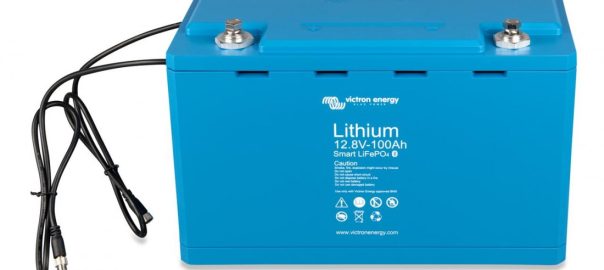
Why Choose a LiFePO4 Portable Power Station?
Most portable power stations use lithium iron phosphate (LiFePO4) batteries. They’re safer and more sustainable than other lithium chemistries. They don’t contain cobalt, nickel, or other corrosive materials that are hazardous to the environment.
They last for 5,000 charge cycles, which is up to 10 times longer than lead acid and regular Lithium-Ion batteries. You’ll need a good battery charger and inverter to get the most out of them.
Low Maintenance
LiFePO4 batteries have a much lower maintenance requirement than Ni-Cad cells. They also don’t have the memory effect that requires regular discharging to avoid sulfation and capacity loss. With proper storage, a lithium battery can sit in storage for months without losing any capacity.
One of the best ways to protect your lifepo4 batteries is to store them in a temperature-controlled, insulated area, if possible. A cold battery can lose a charge faster and struggle to recharge.
Keeping the cell temperature in the optimal Portable lifepo4 battery range will help you avoid swelling, which happens when the battery is overcharged or deeply discharged. Swelling is not harmful but may reduce the battery’s lifespan.
In addition to storing your battery in an ideal environment, you should check the cells and battery regularly. Look at the terminals for corrosion, examine the case for damage, and ensure all connections are tight. These simple maintenance steps will keep your batteries in better condition and maximize their lifespan.
High Energy Density
Energy density is the amount of power that can be stored in a battery compared to its mass. This allows a battery to perform work for longer, or be smaller and lighter. A high energy density battery can also be charged and discharged more quickly. This is important for devices like cell phones that need to be recharged often.
A battery’s energy density is typically measured in watt-hours per kilogram (Wh/kg). The higher the energy density, the more powerful the battery. However, it is important to note that energy density is not the same as power density.
LiFePO4 batteries have the highest energy density of all lithium ion battery chemistries. They use a lithium iron phosphate cathode and a graphite anode, and have a potential energy density of up to 160 Wh/kg. This is much higher than other lithium ion batteries such as nickel cobalt aluminum or nickel manganese cobalt. The increased energy density of these batteries could allow electric vehicles to go further on a single charge without increasing the size of their battery packs.
Long Lifespan
A battery’s lifespan is a crucial factor to consider when deciding on an energy storage solution. The battery you choose will need to be able to hold its charge for years without losing efficiency or reducing Portable lifepo4 battery capacity. LiFePO4 batteries offer a long lifespan compared to other lithium battery chemistries. This longevity makes them ideal for use in solar power systems, backup power, and more.
These batteries are also less prone to thermal runaway than other lithium-ion battery types. This means they can be stored safely in small, enclosed spaces like garages or sheds – although some ventilation is still advisable. They are also safer than lead-acid batteries and don’t release toxic gasses if damaged.
These batteries can endure high temperatures as well, which makes them a good choice for use in hot and cold environments. They also have a much higher cycle life than other lithium batteries, which allows them to last for decades without degradation. Batteries such as the Growatt INFINITY 1300 can perform up to 5,000 cycles at a 80% depth of discharge without reducing their capacity significantly.
Safety
The safety of lithium batteries has been an ongoing concern, particularly when used in battery-powered devices such as e-cigarettes and toys. In some cases, these batteries can overheat or even explode. The Consumer Product Safety Commission has received consumer complaints, manufacturer and retailer reports, and fires at recycling and disposal facilities.
While lithium ion batteries are more durable than lead-acid batteries, they still present some hazards, especially during shipping and storage. The high energy density of lithium ion batteries requires rigorous testing methods. For example, nail penetration tests are not possible with today’s high-density cells due to the thin separators.
It is important to store lithium batteries in a safe place, such as a garage or shed. They should also be kept away from extreme temperatures, as these can reduce their lifespan and efficiency. Keeping the batteries in their optimal temperature range will also help them to charge more quickly and efficiently. This will extend their battery life and increase their performance. This is why it is essential to follow the battery manufacturers’ storage instructions.
Reliability
In contrast to lead-acid batteries, which are only capable of a few hundred cycles before a decline in capacity and efficiency occurs, Lithium iron phosphate batteries can handle thousands of charge and discharge cycles. This means that they will provide you with the power you need for years to come.
These batteries are also very durable, so you can count on them to perform well in extreme temperatures. However, they are best suited for warmer climates because exposure to cold temperatures can cause the battery’s performance to degrade.
These features make lithium iron phosphate batteries a great option for camping and emergency preparedness. They are easy to use and have a long lifespan, making them a reliable choice for your portable power needs. Plus, they charge 5x faster than lead-acid batteries, so you can get back up and running quickly. In addition, they don’t explode or catch fire if punctured or damaged. This makes them a safer alternative to other lithium-ion batteries. You can use them for a variety of purposes, including charging your electric devices and appliances.
